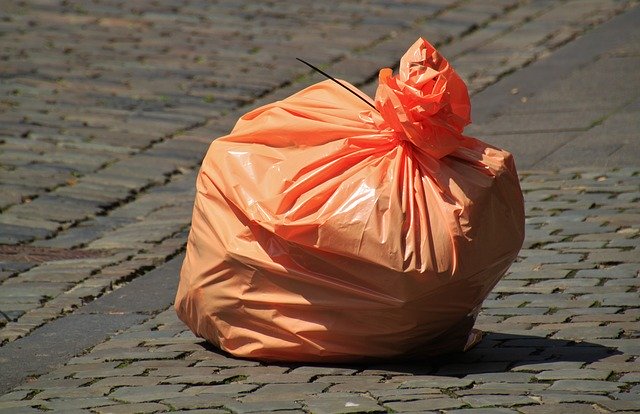Abandoned waste, what are the penalties?

The intervention of the environmental lawyer Stefano Palmisano
It happens that you go walking in the hills, on a path that you have been doing for years.
Precisely for this reason you already know what kind of rural landscape you will encounter on your way; what a breadth of biodiversity you must expect to flow to your sides: wooded hills and body-bag sacks of mixed trash; dry stone walls under which vintage televisions lie; majestic fragni that give shade to broken sofas; verdant valleys embellished with the carcasses of burnt cars.
For almost forty years this environment has stolen you with its richness every time you come back: in the past to run, today to walk in it.
You know him well, very well; nevertheless, you can't not go back. Or, perhaps, you come back for this very reason.
But what this time you are facing on the dirt road, immediately after exiting a curve, leaves you breathless anyway: an authentic barricade of garbage, of every size and nature, more than three meters long, which literally blocks your path. and – to continue the regenerating walk – it forces you to go around it by entering the bottom that runs along the road.
Rubble and fabrics, electronics and organic, asbestos and plastic: a microcosm (not so micro, actually) of waste. To symbolize not so much the society of waste as the widespread illiteracy of civilization; since there are no particular reasons to think that shows of this kind can only be admired in the Apulian countryside.
THE REPRESSION OF ENVIRONMENTAL MICROCRIMINALITY AND THE LACES AND LACES OF THE "TOTEM PRIVACY"
All this, while the appropriate Guarantor Authority fines a municipality with a 20 thousand euro fine for having installed camera traps without respecting the legal requirements. Even if the camera traps had been mounted "for deterrence only", as they were without card and battery, and therefore were not actually functional; that is, without the Municipality itself having taken "acts or measures prodromal to the start of preventive and repressive activities".
Administrative measures – such as the one in question – which cannot fail to raise some serious questions about the social and environmental consequences, not to say about the meaning itself, of that kind of new regulatory fetish – essentially of Community origin – which is the legislation for the protection of privacy and surroundings.
An interpretative approach – the one in question – which can end up configuring privacy as a sort of " tyrant right ", removed from any serious balance with other rights; even when it comes to rights that now enjoy express and direct constitutional protection, such as the environment.
An approach, however, difficult to be compatible with the GDPR itself which, in one of its "recitals", states that "the processing of personal data should be at the service of mankind. The right to the protection of personal data is not an absolute prerogative, but must be considered in the light of its social function and must be reconciled with other fundamental rights, in compliance with the principle of proportionality. "
In short, a school case of the degeneration of the concept of law into the phenomenon of " rightism ".
WASTE ABANDONMENT: THE VIRTUAL SANCTIONING APPARATUS AND THE (FAILURE) CRIMINAL PROTECTION
In this exciting scenario, in fact and in law, perhaps it is still appropriate to recall what draconian sanctions, so to speak, it faces (or at least it could face: the conditional is more than ever a must, as far as it was highlighted first) those who enjoy decorating the territory by unloading tons of junk of all kinds: a pecuniary administrative sanction from three hundred euros to three thousand euros. If the abandonment concerns hazardous waste, the administrative penalty is increased up to double.
In practice, the abandonment or deposit of waste or its introduction into surface or groundwater is not usually a criminal offense , but only an administrative offense.
The abandonment or uncontrolled deposit of waste becomes a crime only if the perpetrator – as well as that of polluter – holds the capacity of business owner or manager of entities: in the latter case, and only in this case, the penalty is: a) arrest from three months to a year or with a fine of between two thousand six hundred and twenty six thousand euros in the case of non-hazardous waste; b) arrest from six months to two years and with a fine of between two thousand six hundred and twenty six thousand euro in the case of hazardous waste.
Substantially virtual sanctions, which will very rarely have any serious consequences for environmental offenders; also criminal ones, due to a long series of institutions and norms, old or new – starting from the obvious prescription of the crime – which have the concrete effect of depriving the criminal law of any effectiveness and, therefore, of any deterrent effect.
A CONSTITUTIONAL REFORM STILL TO BE IMPLEMENTED
A few months ago, the obligation for the Republic – that is to say for all branches of the State – to protect the environment was introduced into the Constitution.
But this, obviously, is not yet a country for the environment.
Stefano Palmisano , environmental lawyer
Article published on avvstefanopalmisano.it
This is a machine translation from Italian language of a post published on Start Magazine at the URL https://www.startmag.it/energia/abbandono-rifiuti-sanzioni-inesistenti-non-e-un-paese-per-lambiente/ on Sat, 27 Aug 2022 06:15:40 +0000.
